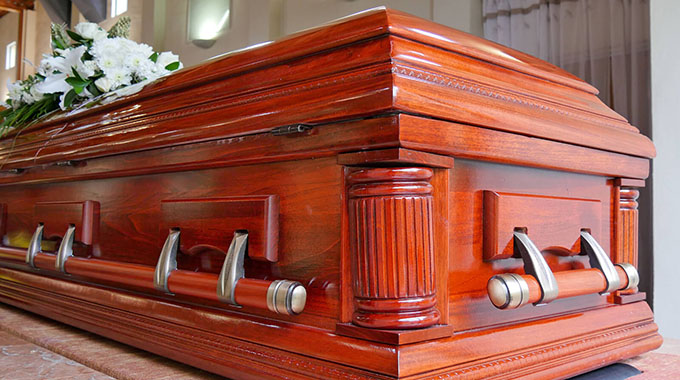Source: Movement of corpses clarified | The Herald
Elita Chikwati and Thupeyo Muleya
Bodies can be buried outside the city or town of death, and repatriation of Zimbabweans for burial will continue, but under strict health protocols, Government clarified yesterday.
The new protocols include no body viewing, no carrying of the body home, using sealed coffins where everyone keeps a distance of 4 metres from the coffin, regardless of cause of death.
In a statement yesterday, the Ministry of Health and Child Care said the movement of bodies was still allowed as long as the prescribed health guidelines were observed.
Even where the death was due to Covid-19, the corpse could be transported in a sealed coffin.
“For those who want to transport the body for burial outside the city or town of death, they should ensure that the body is hermetically sealed in a triple coffin before collection of body from funeral parlour or hospital mortuary,” said the Ministry of Health and Child Care.
“The police will only clear body movements for burial straight from a funeral parlour or hospital mortuary to the burial site. No body viewing will be allowed. Bodies will not be taken home. The public is urged to keep a distance of 4 metres as the body is lowered into the grave by either city health or funeral parlour officials.”
Other protocols include disinfection of the grave site before and after burial, while gatherings at funerals have been reduced to strictly 30 people.
Police commanders in all provinces have been advised to ensure the Government directive is complied with.
The Ministry of Health’s director of environmental health, Mr Victor Nyamande, yesterday said all the necessary precautions were being taken to save more lives.
He said Zimbabweans who die outside the country will be repatriated, but subjected to a rigorous process.
“We are taking all the necessary precautions to make sure we avoid having more infections. Those who will die in foreign countries will be allowed burial in the country, but we are going to effect strict monitoring and supervisory techniques,” said Mr Nyamande.
He said the processing of repatriation documents, will besides passing through the embassies, be subject to approval by the Ministry of Health and Child Care. Mr Nyamande said it was important for parties processing documentation, including funeral parlours, to cooperate with authorities so that Zimbabweans are afforded the decent burials they deserve.
“Those who seek to transport the bodies for burial elsewhere will have to undergo a tight screening process from authorities,” he said.
The officials said all bodies will be taken from the funeral parlours and hospital mortuaries to the place of burial.
“There will be no body-viewing or taking of bodies home. From the airport or land border, the remains will be taken straight to the grave-site as indicated.
“The burials will be supervised by health officials to ensure that we protect the communities from Covid-19 infections and we can only succeed with everyone’s cooperation,” he said.
Zimbabwean and South African health authorities came up with joint stringent measures recently after consultations between South Africa-based funeral parlours and authorities from the two countries.
On average 60 bodies of Zimbabweans are repatriated from South Africa through Beitbridge Border Post weekly.
To process documents at the country’s embassies, people require Ministry of Health and Child Care clearance for repatriating remains of Zimbabweans, and a birth certificate or national identification documents of the deceased.
This applies mostly to those travelling by road. Where the remains are flown home, a passport is mandatory and a copy of the informant’s particulars and a burial order.
On average, it costs R15 000 to transport a body from South Africa to Zimbabwe by road.
Home Affairs and Cultural Heritage Minister Kazembe Kazembe last week warned those defying the order restricting people to 30 per funeral.
“The ministry has also noted with concern, that despite funerals being allowed a maximum of 30 people, this limit is being disregarded by many.
“Citizens are urged to observe this regulation. Any violation of this requirement will meet the full wrath of the law,” said Minister Kazembe Kazembe.

COMMENTS